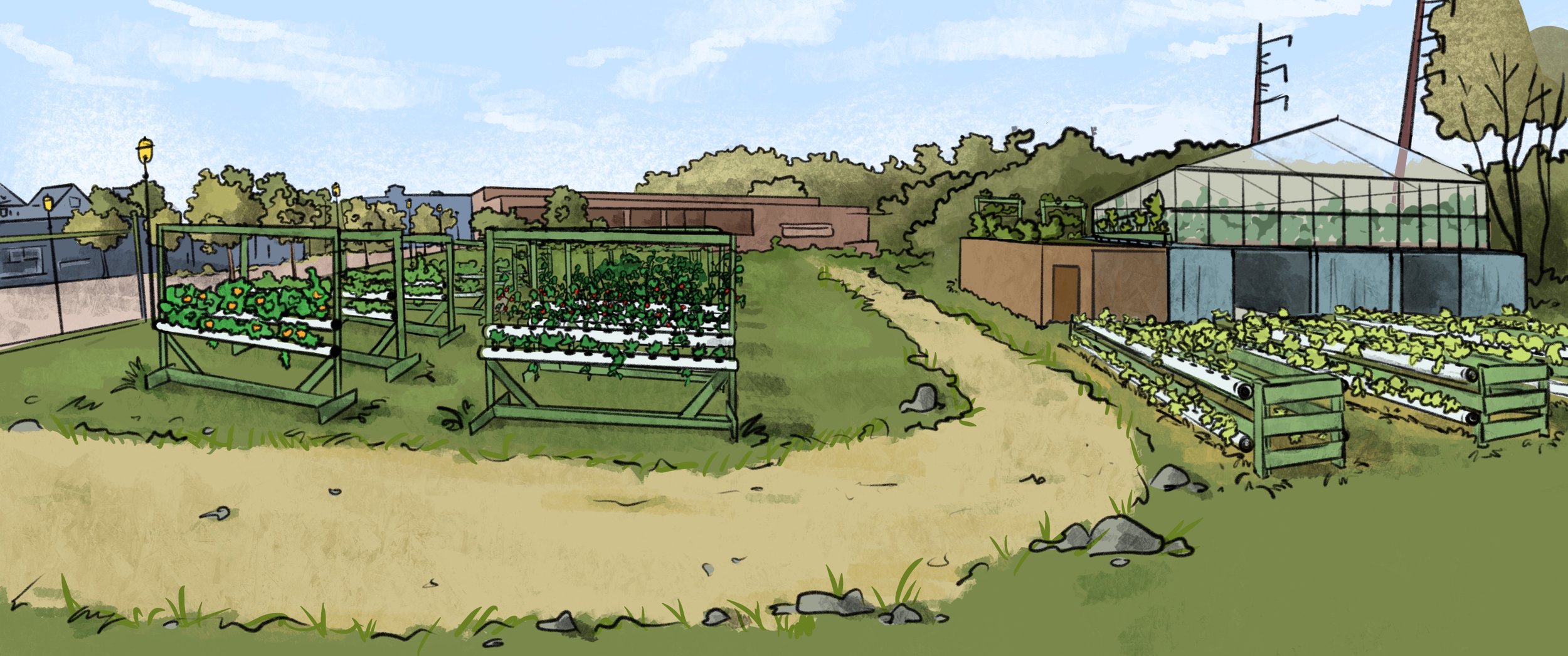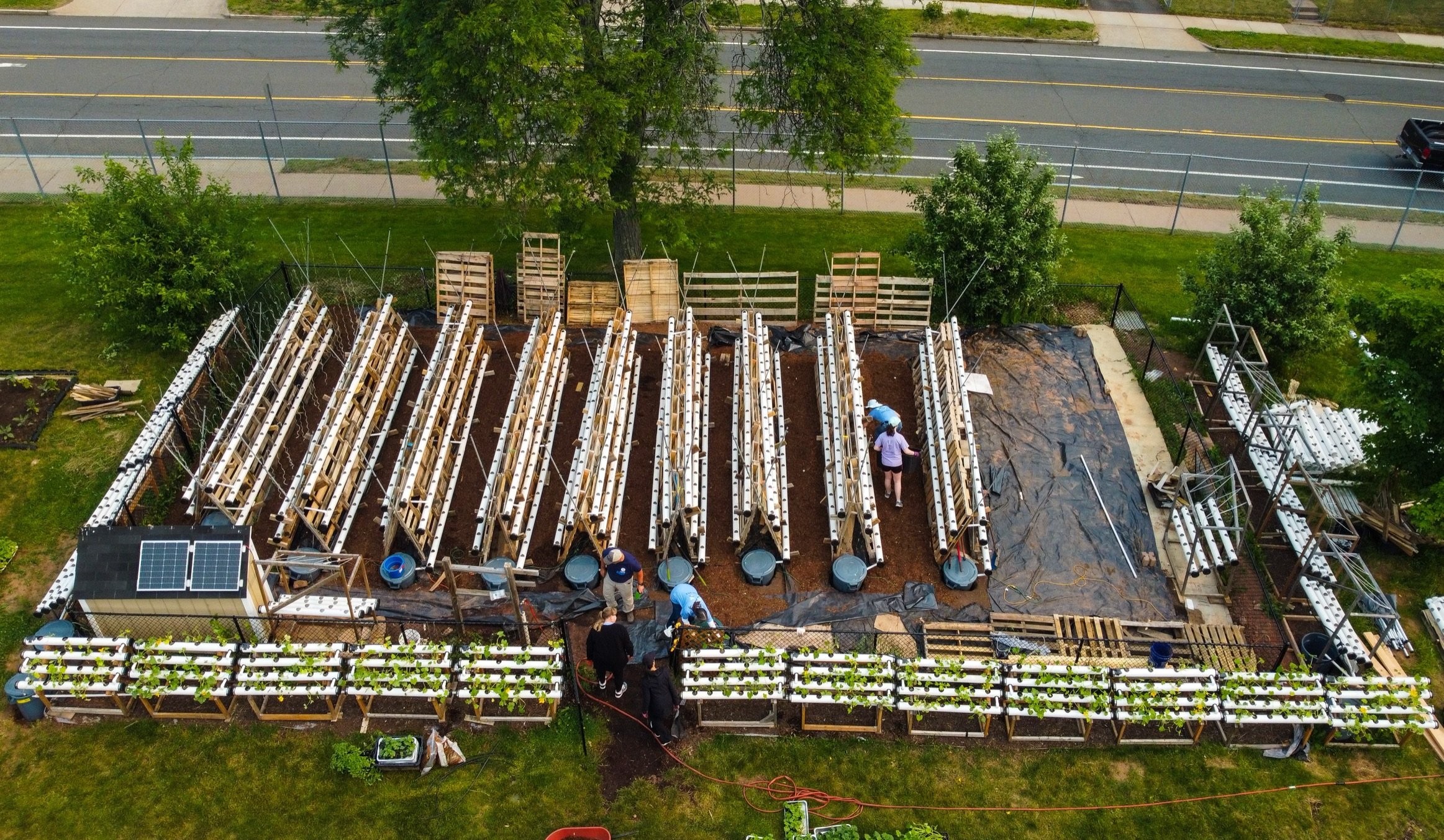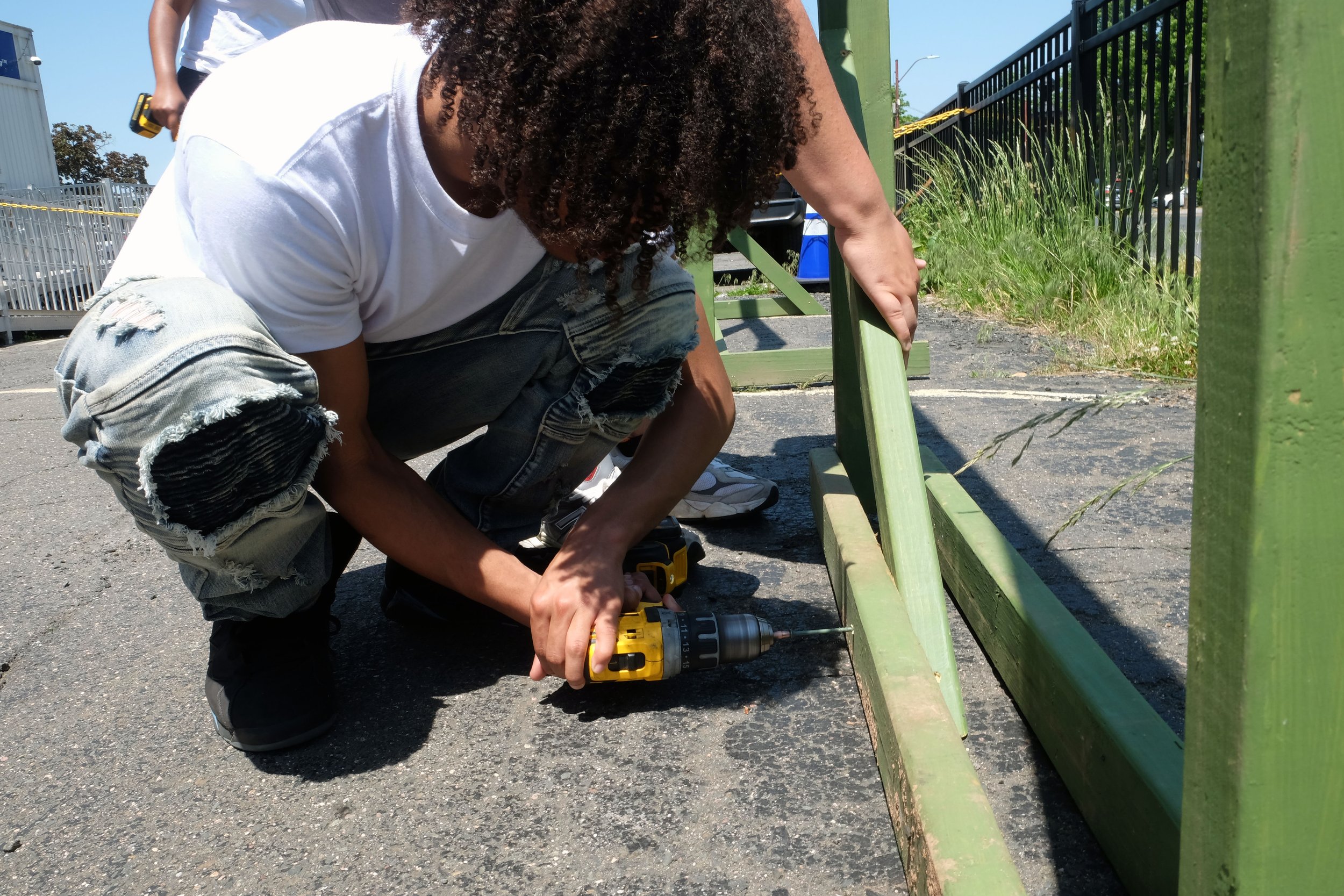What We're Working On
Levo does a whole lot. We have broken down our work into 6 overlapping categories. We are growing fast. If you would like to work with us or have questions on our programs, please don’t hesitate to reach out. Click on the links below to jump to a specific project.
International
Despite a rapidly growing domestic operation, Levo continues to grow internationally. Simplified hydroponics has an ever greater potential impact on communities in developing economies. The technology was originally developed for rural Haitian families. Our approach to hydroponics allows for maximum local empowerment. Materials are purchased almost entirely locally and staff are recruited from the communities we serve.
Haiti Program
Levo has grown our program in Haiti with the support of the incredible Haitian staff, despite widespread violence and insecurity that makes travel in the country practically impossible. To date, Levo supports over 500 households with our “bokit” systems, made from recycled pails readily accessible in Haiti. The bokits allow for vegetables to be grown even where people have to walk over a mile for their water and have no electricity or arable land.
Mexico Program
In 2023 Levo launched a pilot in partnership with Friends of Pimpollo. Friends of Pimpollo supports thousands of students in Oaxaca, Mexico, and has constructed dozens of schools for the community. Levo launched a pilot in the Fall 2023 to provide 32 households with hydroponics as well as build a hydroponic system for the community center. These systems are being maintained by the agronomy program and it is anticipated to be a fast-growing program.
Food Is Medicine
Simplified hydroponics is affordable and practical for growing fresh produce in almost any setting. It is a powerful tool for community health organizations, hospitals, medical practices, and anyone looking to get their clients, staff, or patients involved in healthy eating and gardening. It does great on a roof, parking lot, or even in empty rooms as a way to grow produce for food “farmacies”, and engage patients and staff with gardening and healthy eating.
Urban Farming and Retail
Much of the United States urban centers are filled with vacant or blighted properties. These communities also tend to be some of the poorest and most food insecure. Levo’s model and hydroponics turn vacant land into highly productive agricultural space and retail access for healthy foods. Every square foot provided to Levo translates to a pound of produce. These plots are not traditional community gardens, they are farms. The neighborhood farms produce food that employs local community members as well as increasing food access.
The neighborhood farms are non-permanent. This means properties that are earmarked for development can be used until they break ground. Additionally, they are not bound like traditional gardens by the soil quality, and therefore can be set-up on brownfields. This model will allow Levo to reach its goal of one million pounds of vegetables grown in Hartford by 2028.
Education
Levo provides educational programming to hundreds of students annually, of all ages and abilities and fits that programming into schools and groups desired coursework. Levo has and does provide training in plant science, farming, engineering and design, woodshop/carpentry, project management, environmental science, and more. Our education team brings a wide range of skills, getting students involved with the construction all the way to broader societal implications of their work.
Groton Public Schools:
Levo has been working with the Groton Public Schools since 2021, and has installed hydroponics throughout their schools. The high school has hydroponics in their greenhouses as well as right in their cafeteria with grow lights, creating a living salad bar for students. The success of these systems has led to the development of a hydroponic shipping container, capable of growing 2500 heads of lettuce at any given time. This container has been incorporated into the school's curriculum.
CREC Impact Academy:
CREC Impact Academy exists to re-engage students who have lost their desire for education. Levo’s approach has fit well into CREC’s 6-week module model. Levo has focused on the hands-on learning component. Impact students have helped design and build hydroponic systems in their community, from the rooftop of Hartford Hospital to vacant lots in Hartford to their classrooms. Students have left classes with Levo with real skills, some of which are as simple as how to use a drill. Levo actively recruits students from these classes and has hired several students since beginning with Impact in 2023.
ACES Regions:
Based on Levo’s success with Impact Academy, ACES and Levo are launching a series of hydroponic modules designed to teach ACES students hard skills, particularly in carpentry and urban farming. This program will reach students in the criminal justice system and will take place in Plainville, Hamden, and Hartford.
Other School Partners:
Project Marcos Sanchez
Enfield Montessori
Fairfield Prep
Northwest Catholic
Academy of International Studies
Kingswood Oxford
Classical Magnet
Employment and Jobs
Levo supports many organizations with food production for their programs but also grows for our customers. This includes a Community Supported Agriculture (CSA) program, a food subscription where Levo drops off fresh produce to companies, churches, and households in the Greater Hartford area. To do this, Levo hires and trains dozens of residents in hydroponic production. This program partners with Levo’s Neighborhood Farming Initiative, training employing community members from the areas most impoverished communities.
Research and Development
Levo is not a normal non-profit, we are investing significant energy into innovating in hydroponics. To date we have published research and are working on making the technology more productive and accessible for communities around the world.
Organic Hydroponic Fertilizer
To date, there are very few reliable organic hydroponic fertilizers available. Levo is developing a hydroponic fertilizer from agricultural waste products such as corn and sugar cane to create an effective and most importantly accessible organic fertilizer. Due to recent successes in testing, Levo anticipates a viable product for widespread use in the next 24 months.

















